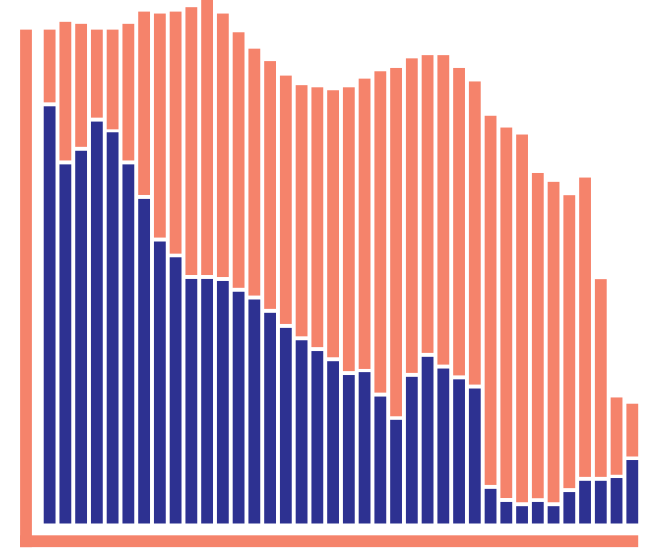TESTIMONY – TRUTH OR POLITICS
The Concept of Testimony in the Commemoration of the Yugoslav Wars
25 years have passed from the beginning of the Yugoslav Wars. This new war in Europe has shaken the perception that the structures built after WWII will ensure a lasting peace. As part of the buildup of nationalism, during the conflicts and afterwards, testimonies were used by the official establishment of each country seceding and succeeding Yugoslavia, in the media, in schoolbooks or historical exhibitions to justify its own national, ethnic or religious position, while others who were not willing to justify these positions were silenced through direct political repression and the systematic erasure of the frame of reference that relates these testimonies to the reality they presume to represent. This exhibition takes as a starting point the testimonies of war participants and antiwar activists, interviewed by their peers – comrade fighters, family members, neighbours, artists and activists. They show the functioning of the system and its continuity and discontinuity through time. It is precisely this testimony that reveals the way the system functions in all its aspects - political, economic, social and cultural - rather than the testimony of one’s own suffering that Primo Levi defines as political. They show that testimonies act to complexify, layer and sometime oppose the hegemonic historical narrative or “the official truth”, for example, exposing the socio-economic motivation and benefits from the war, as well as reflect a common experience of these wars and their consequences. Since witnessing is a participative act, testifying is an act of speech with multiple addressees at once, at the least; those relating to the situation testified about, the situation of testifying and a self-address which constitutes multiple speakers. The simultaneity of time and space creates an ever-changing assemblage of singular-plural social relations, intimate and political, at work much after the testimony has been given and is heard anew each time. The diversity of social relations at the base of testimony makes its relation to reality complex, both that experienced as well as that in which testimony is heard. This makes it unstable for the purpose of the listener whose demand is for The Truth i.e. a comprehensive meaning which would constitute the person testifying as Subject and/or as a generic Subject as well as constitute both testifying and testified factual situations as Events.
Sixteen artists and artistic duos have been chosen by and in an open international call. Their artistic approaches to the process of art production vary from archival research, participatory audio-visual anthropology to statistical and technological rethinking produced audio works that display a wide range of formats (media) from music composition and performances to visual arts audio installations. In addition, the exhibition will present a testimony archive - a social network portal that will allow visitors to listen and search the interviews (in BHS, Italian and English) as well as compile their own narratives. The exhibition will open a channel through which these testimonies can be heard and contextualized.
This exhibition is part of the project TESTIMONY – TRUTH OR POLITICS: The Concept of Testimony in the Commemoration of the Yugoslav Wars, led by The Center for Cultural Decontamination, Belgrade; and partners are The Ignorant Schoolmaster and his Committees, Belgrade; The Museum of Contemporary Art, Belgrade; Historical Museum of Bosnia and Herzegovina, Sarajevo; Centre for Cultural and Social Repair, Banja Luka;Boem, Vienna, Austria; OsservatorioBalcani e CaucasoTranseuropa (OBCT Transeuropa), Rovereto, Italy; The Institute for Philosophy and Social Studies, Belgrade and The institute for East and South East European Studies in Regensburg Germany.
The exhibition was held at:
Follow the links for more information
Boccanera Gallery, Trento, Italy – 17.11.2017 - 08.12. 2017
Galerija-legatMiliceZorić i RodoljubaČolakovića, MoCB, Belgrade, Serbia – 14.12.2017 - 29.01.2018
Volkskundemuseum Wien,Vienna, Austria – 16.04.2018 - 30.09.2018
BASOK, Banja Luka, RepublikaSrpska, Bosnia & Herzegovina – 10.03.2018 - 05.05.2018
Curators: Noa Treister (CZKD/ The Ignorant Schoolmaster) i Zoran Erić (MoCAB)
Participating Artists:
Sanja Anđelković, Bojan Krivokapić, Andrea Palašti, Serbia - The Grammar of the Testimony of War
Ana Bunjak, Serbia - The 20th Century Fugue
Daniel Nicolae Djamo, Romania - 16 sounds of paper
Marianna Fumai, Iula Marzulli, Italy - Past is Present
Filip Jovanovski, Macedonia - A Proposal for a Monument of the Communist Whore
Kristina Marić, Croatia - Constructing Memory 1
Jelena Marković, Serbia - I Called Home
Vladimir Miladinović, Serbia - Indiscernible
Dorone Paris, Israel/Ireland - Not A Victim
Nikola Radić Lucati, Serbia - Radio-witness
Mersid Ramičević, Serbia/Germany - A Word Is Not A Word, Not That Word: Children’s Song
Lala Raščić, Bosnia and Herzegovina/ Croatia - Conflict Syntax .Dot. Dot. Dot.
Katarina Sević, Serbia/Germany - Objective Archive? Archive vs. Keywords
Jacek Smolicki, Poland/Sweden, Tim Shaw, UK - Fragmented witnessing
